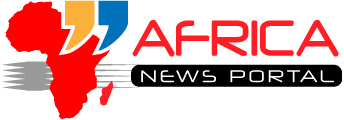
It is true that doing business in Africa brings challenges, including unfamiliar business practices, legislation differences, and red tape. Picture: THINKSTOCK
It is true that doing business in Africa brings challenges, including unfamiliar business practices, legislation differences, and red tape. Flights are few and unreliable, connectivity is slow or nonexistent and it can be expensive. But the opportunities are immense.
Meeting the challenges can, however, help make your business more efficient. When the client is in Accra rather than Sandton, returning to fine-tune an implementation or retrain a client is not an option. The pressures of working at a distance with limited connectivity are forcing many companies to look at how they can make their implementations more efficient. Careful advance planning and rigorous triple-checking are indispensable. If the client is not ready for the consulting team when it arrives, or if they are not able to finish the job in a single trip, the budget is blown out of the water.
It also helps to be more systematic about the sales process, scheduling multiple appointments per trip and making as much use of remote meeting technology as possible. Web-based demos and screen-sharing are powerful tools that deserve more use. It is equally important to have timeous information, readily available for all parties. There is no point pushing the sales team to beat its targets if there is a production bottleneck at your factory that means you can’t deliver on time.
Not everyone will like this — there is always a minority quite happy to live in convenient obscurity. But the vast majority of people will welcome tools that give them more information, and more ability to get things done. When financial information flows freely across the organisation, as well as up and down the hierarchy, it is like oiling the machine: things get smoother, and you can push that little bit harder and faster without risking damage. There is no good reason not to do it.
The more geographically dispersed an organisation is, the more important this function becomes. I liken it to a well-organised orchestra. One of the insights of the orchestra analogy is that an orchestra cannot perform without a conductor — and we like to think that accounting and finance departments operate like conductors for business. It is the conductor who sets the pace, monitors what is going on and lets people know when and how to adjust their performance for the best results. But if we are fully aware of the needs of the market in Africa, as well its constraints, and our ability to overcome them, everyone will benefit. The needs of the market in the rest of Africa will probably drive South African software companies to deliver more cloud-based services. And here the constraints will deliver another gift: delivering cloud services to places where bandwidth is limited, expensive and unreliable is not a small challenge. Meeting this challenge will require innovation and ingenuity that will never be demanded from those working in a bandwidth glut — and that again will bring new opportunities in its wake.















